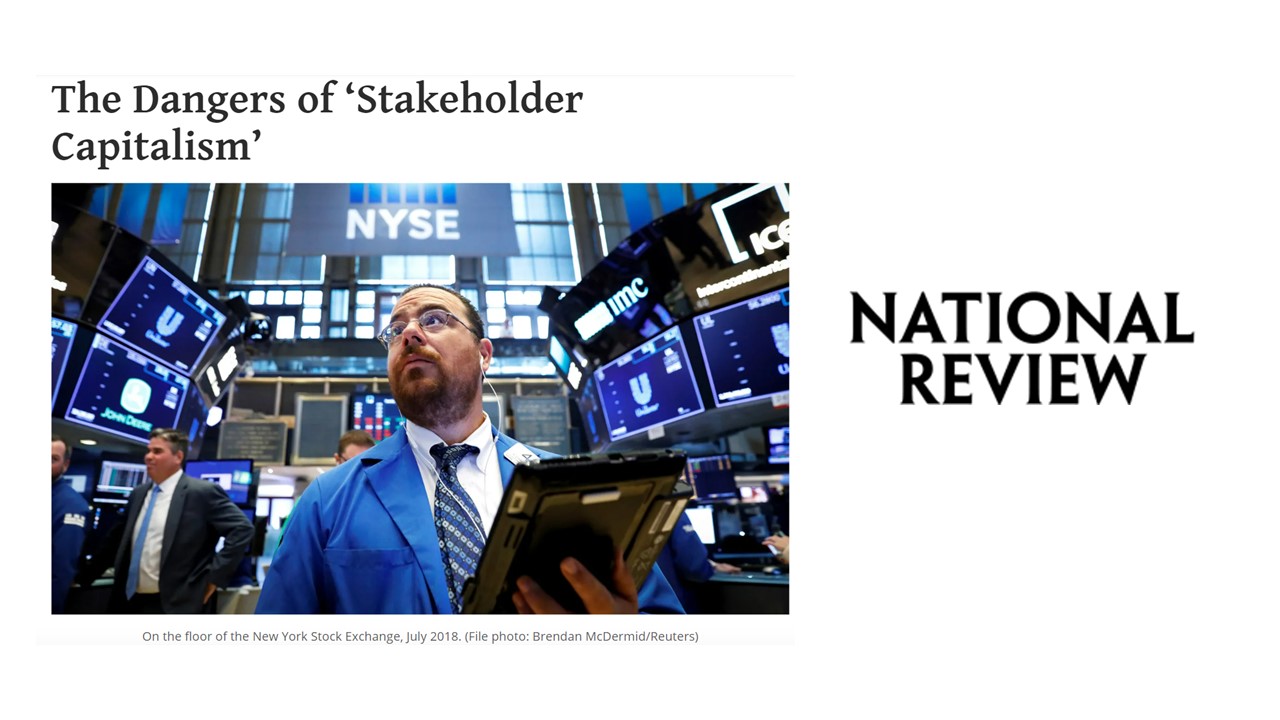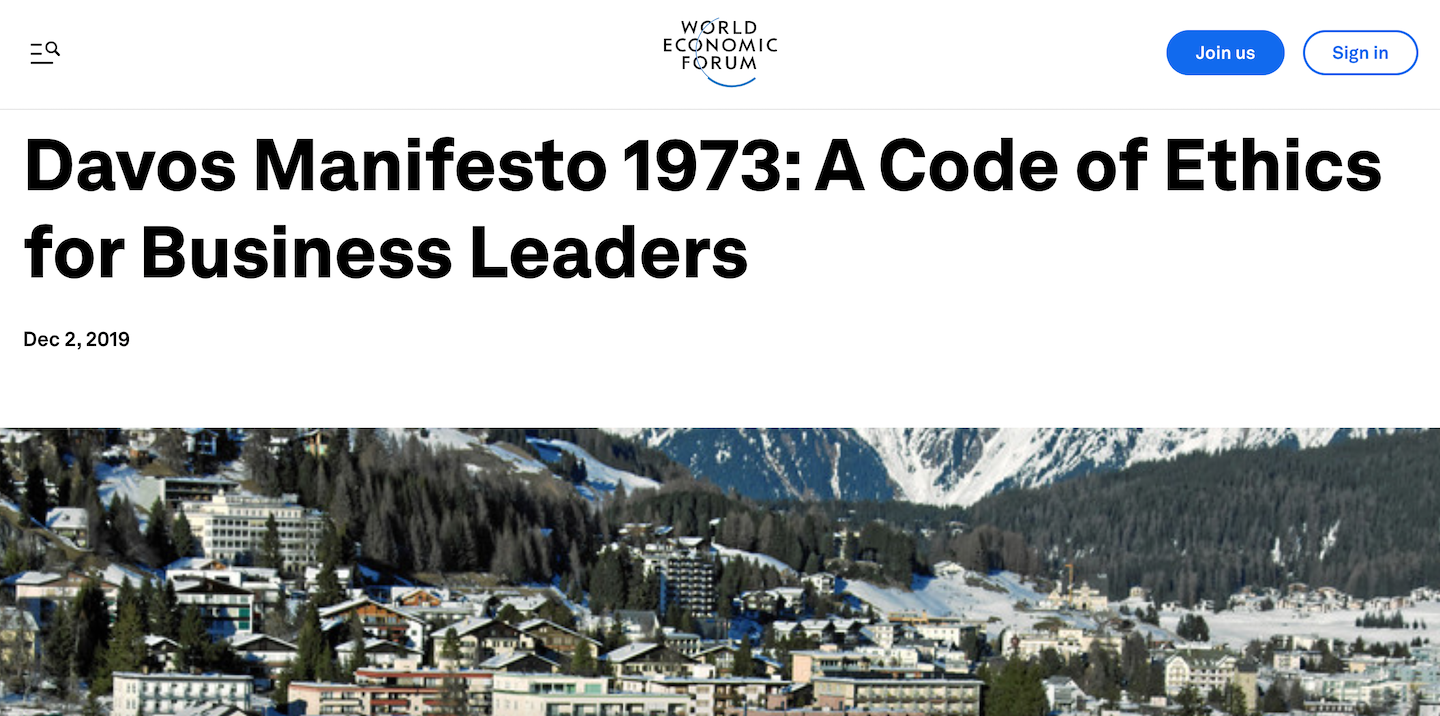How Corporate Communications Firms Unleashed the Anti-ESG Firestorm
 A look at the history of the anti-ESG (environmental, social, governance) firestorm suggests a lot of it was the legitimate response to greenwashing encouraged by corporate communications firms. In identifying the public’s desire for a more humane approach to business, they failed to anticipate the backlash and the inevitable rabbit hole that opened after CEOs started speaking out on politics, social, and religious issues unrelated to the purpose, goals, and objectives of their organizations. Here’s an overview of what happened and how the new European Union Corporate Sustainability Reporting Directive will help end greenwashing practices.
A look at the history of the anti-ESG (environmental, social, governance) firestorm suggests a lot of it was the legitimate response to greenwashing encouraged by corporate communications firms. In identifying the public’s desire for a more humane approach to business, they failed to anticipate the backlash and the inevitable rabbit hole that opened after CEOs started speaking out on politics, social, and religious issues unrelated to the purpose, goals, and objectives of their organizations. Here’s an overview of what happened and how the new European Union Corporate Sustainability Reporting Directive will help end greenwashing practices. By Bruce Bolger
Greenwashing Has a Clear Paper Trail, With Justifiable Backlash
The Path Forward
To people passionate about the principles of stakeholder capitalism, the successive announcements by the Business Roundtable in 2019, by Larry Fink of Blackwater in his 2020 letter to investors, and the re-affirmation of the 1973 Davos Manifesto at the 2020 Davos Conference, and extensive coverage of the principles by Fortune magazine's CEO e-newsletter, created heady days. Unfortunately, these statements and others by perhaps well-meaning corporate communications and public relations firms led to a legitimate backlash because for the most part there was no formal plan to put these practices into place in an auditable manner.
 In effect, the backlash is not against the original principles of stakeholder capitalism and ESG (environmental, social, governance), developed by total quality management and management experts and academic researchers decades before the current controversies, but rather against the greenwashing expropriating their nomenclature that ensued in the late 2010s during a heightened period of social unrest. By superficially appropriating the language of decades of work in stakeholder management without a full understanding of its definition, the public statements made during the height of social tensions in the late 2010s conflated a more effective and ethical means of management with the concept of corporations getting involved with or considering themselves leaders in solving social issues unrelated to their missions.
In effect, the backlash is not against the original principles of stakeholder capitalism and ESG (environmental, social, governance), developed by total quality management and management experts and academic researchers decades before the current controversies, but rather against the greenwashing expropriating their nomenclature that ensued in the late 2010s during a heightened period of social unrest. By superficially appropriating the language of decades of work in stakeholder management without a full understanding of its definition, the public statements made during the height of social tensions in the late 2010s conflated a more effective and ethical means of management with the concept of corporations getting involved with or considering themselves leaders in solving social issues unrelated to their missions.“While it may be true that firms that take exceptionally good care of their stakeholders may also be good corporate citizens, the objective behind stakeholder theory is effective and efficient management in an increasingly turbulent business environment rather than pursuing social welfare for its own sake,” says Jeff Harrison, David Robbins Chair in Strategic Management at the Robins School of Business, University of Richmond since 2004, in an article in ESM.
In fact, in an Enterprise Engagement Alliance YouTube show last year, R. Edward Freeman, author of Strategic Management: a Stakeholder Approach, the 1984 book that helped crystallize stakeholder theory, warned that greenwashing was potentially one of the biggest threats to stakeholder capitalism implementation.
Indeed, the European Union commission that created the new Corporate Sustainability Reporting Directive specifically describes it as an “anti-greenwashing” law. It requires all organizations eventually subject to the law (eventually all those operating in the EU with $44 million or more in sales or 250 or more employees) to publish audited corporate sustainability reports following a common format for ease of comparison available on a searchable database being created to support the new reports. The law largely mirrors the principles of stakeholder capitalism by requiring companies to make disclosures on how they create risks and opportunities for all stakeholders--customers, employees, distribution and supply chain partners, communities, and the environment and how these stakeholders and the environment create risks and opportunities for organizations.
Note on the definition of stakeholder capitalism: Based on a review of over 100 studies prior to the 2019 proclamation by the Business Roundtable that appears to have set off the controversy, the Enterprise Engagement Alliance produced the following definition with the help of Martin Whittaker, CEO of JUST Capital and Alex Edmans, Professor of Finance at London School of Business who successfully submitted it for publication in Forbes in August 2020: “Enhancing returns for investors only by creating value for customers, employees, distribution and supply chain partners, communities, and the environment.”
Greenwashing Has a Clear Paper Trail, With Justifiable Backlash
Giles Jackson, Baxa Professor of Stakeholder Capitalism at Shenandoah University explains how the greenwashing appears to have unfolded. “Investment, public relations, communications, and marketing firms started seeing in their focus groups and surveys that their stakeholders had a growing interest in sustainability issues, not only the environment but also about the way corporations treat their employees, customers, and communities. This also led to a lot of investment firms creating ESG funds or organizations to start publishing glossy corporate sustainability reports touting their environmental practices and community donations with no clear, or auditable principles.”
As he sees it, “So when at the peak of social unrest companies began to issue statements about the need to address the needs of their stakeholders, they never explained what they meant or backed it up with substance.” Noting the work of Harvard Law School Professor Lucian Bebchuk, whose report, “The Illusory Promise of Stakeholder Capitalism” and subsequent work found little evidence that any of these organizations put these principles into action, he adds, “these statements indeed turned out to be in many cases hollow words.”
So was it a surprise when the New York Times correspondent Peter S. Goodman published the book Davos Man, whose essential message was that all these statements were nothing more than grandstanding? See ESM: Davos Man Author on the Dangers of Stakeholder Capitalism.
To the right wing, these proclamations were even more dangerous: at the least, a diversion of corporate resources to the pet causes of senior management under pressure from a “woke” left, or even more dangerous, corporatism, the concept that large corporations were banding together to set policies around the world. Politicians in many of the very same states that passed public benefits laws supporting the principles of stakeholder capitalism proposed and passed laws to prevent state pension funds to invest in ESG-oriented funds.
The Path Forward
As R. Edward Freeman, Professor of Business Administration at Darden School at the University of Virginia recently put it, “The debate did set us back, but it won’t for long. The push for new paths to value creation is simply too strong.”
Multiple factors will drive the continued drive toward stakeholder management:
- An untapped source of value creation. Organizations will be able to achieve the same improvements in outcomes and experiences in stakeholder management that have been achieved through the application of total quality management principles in manufacturing.
- Breaking down the siloes and unleashing the voice of stakeholders toward a common purpose, goals, objectives, and values is a proven strategy for enhanced efficiency and stakeholder experiences.
- If the EU Corporate Sustainability Reporting Directive has one impact it will be to reduce and potentially end the practice of publishing unaudited corporate sustainability reporting. The desire for transparency and disclosures is also being driven by a significant decline in trust.
- Human capital analytics and related tools are making it possible for organizations to put a better price tag on the potentially huge cost of disengagement they have carried on their books for years.
- Growing numbers of investors, customers, employees, communities, and other stakeholders prefer to do business with organizations focused on making money by creating value rather than extracting it.
- Extensive research and compelling logic demonstrate that organizations that make money by creating value without offloading costs on to society can in every way compete with and in many cases outperform their competitors without such concerns.
- For-profit organizations can have a positive impact on society simply by focusing on enhancing returns for investors by creating value for customers, employees, supply chain and distribution partners, communities, and the environment, rather than by extracting value through deceptive marketing, underpaying people in unhealthy work environments, squeezing distribution and supply chain partners, and leaving behind abandoned buildings and polluting the environment. There is no obligation for any profit-seeking organization to do any more than that.
ESM Is Published by The EEA: Your Source for Effective Stakeholder Management, Engagement, and Reporting
Through education, media, business development, advisory services, and outreach, the Enterprise Engagement Alliance supports professionals, educators, organizations, asset managers, investors, and engagement solution providers seeking a competitive advantage by profiting from a strategic and systematic approach to stakeholder engagement across the enterprise. Click here for details on all EEA and ESM media services.
1. Professional Education on Stakeholder Management and Total Rewards
- Become part of the EEA as an individual, corporation, or solution provider to gain access to valuable learning, thought leadership, and marketing resources to master stakeholder management and reporting.
- The only education and certification program focusing on Stakeholder Engagement and Human Capital metrics and reporting, featuring nine members-only training videos that provide preparation for certification in Enterprise Engagement.
- EEA books: Paid EEA participants receive Enterprise Engagement for CEOs: The Little Blue Book for People-Centric Capitalists, a quick implementation guide for CEOs; Enterprise Engagement: The Roadmap 5th Edition implementation guide; a comprehensive textbook for practitioners, academics, and students, plus four books on theory and implementation from leaders in Stakeholder Management, Finance, Human Capital Management, and Culture.
2. Media
- ESM at EnterpriseEngagement.org, EEXAdvisors.com marketplace, ESM e–newsletters, and library.
- RRN at RewardsRecognitionNetwork.com; BrandMediaCoalition.com marketplace, RRN e-newsletters, and library.
- EEA YouTube Channel with over three dozen how-to and insight videos and growing with nearly 100 expert guests.
3. Fully Integrated Business Development for Engagement and Total Rewards
Strategic Business Development for Stakeholder Management and Total Rewards solution providers, including Integrated blog, social media, and e-newsletter campaigns managed by content marketing experts.
4. Advisory Services for Organizations
Stakeholder Management Business Plans; Human Capital Management, Metrics, and Corporate Sustainability Reporting for organizations, including ISO human capital certifications, and services for solution providers.
5. Outreach in the US and Around the World on Stakeholder Management and Total Rewards
The EEA promotes a strategic approach to people management and total rewards through its e-newsletters, web sites, and social media reaching 20,000 professionals a month and through other activities, such as:
- Association of National Advertisers Brand Engagement 360 Knowledge Center to educate brands and agencies.














